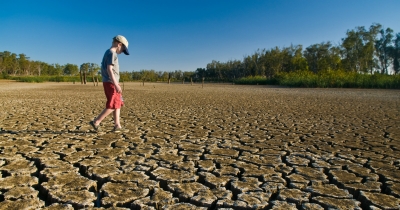
According to the new analysis published in the journal Nature, rising global temperature has shifted at least twice the amount of freshwater from warm regions towards the Earth’s poles than previously thought. The researchers estimate the volume of extra freshwater that shifted from warmer regions between 1970 and 2014 to be between 46,000 and 77,000 cubic km. This is consistent with an intensification of the water cycle of up to 7%. That means up to 7% more rain in wetter areas and 7% less rain (or more evaporation) in dryer areas. This is at the upper end of estimates established by several previous studies, which suggested an intensification closer to 2-4%.
With the water cycle intensifying in a “wet-gets-wetter-dry-gets-drier pattern, water problems such as drought and flooding are likely to become much worse around the world. California will experience more severe drought and Mumbai will experience more severe rainfall and flooding, say researchers. Some people and ecosystems I will be hit harder than others.
What can we do?
Decades of scientific research have shown the clear relationship between greenhouse gas emissions and rising global temperatures, which in turn drives water cycle intensification. Without doubt, decreasing the CO2 emission, better bringing it to zero emission, is our best bet to save the world.
Picture Credit : Google




